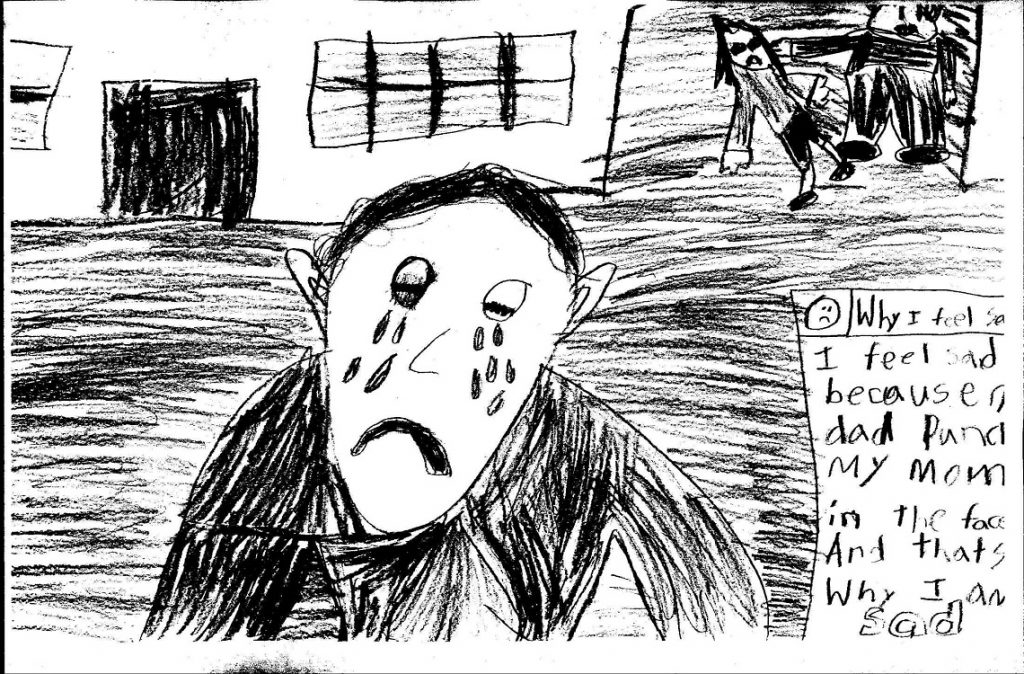Before I go deeper into this issue, let me share you the fact that you cannot be proud of. In Malaysia, Johor is the state with the second largest number of domestic violence. Can you guess which state has the highest cases of domestic violence? Selangor.
Selangor has recorded 4,064 domestic violence cases from 2013 to 2018 while Johor recorded 3,424 cases.
From January to May this year, 2,276 cases of domestic violence were recorded. Women, aged between 26 and 35, were the highest and 758 cases involved married women,
said State Women and Tourism Development Committee chairman, Liow Cai Tung.
Liow said the state government viewed the matter seriously as it would not only cause physical injuries but also tarnish the dignity of the victims.
Such incidents will also cause prolonged trauma to the victims, especially the children.
According to Liow, children too were unwitting victims of domestic violence, resulting in them running away from home, unwanted pregnancy and abandoned babies after delivery.
Highlighted
So, how can it cause prolonged trauma to your kids?
Domestic violence has emerged as a weak social issue and is something that has sprung beyond the borders of domestic limits. Children are still learning, understanding and acting upon curiosity while adults constitute both giving and receiving end. Can you imagine the unfortunate situation of a child, who constantly, has to witness the abuse and are not given love, care, laughter and even security and emotional security? They will easily get lost in the midst of all the unbearable noise and aggression without being to break through or even understand the intense undercurrents.
Childhood. It’s supposed to be surrounded by laughter, joy, love, a mother’s softly sung lullaby, a father’s steady and strong hand, which gives you that protection and security you needed, a household’s warmth, loving and nurturing environment, a body, mind and spirit which should be filled with joy, laughter, giggles and playfulness. These are the things a child should be able to experience. A childhood shouldn’t be full of anger, violence, screams, fights, physical and emotional assaults.
Violence begets violence
“Hate begets hate; violence begets violence; toughness begets a greater toughness,” Martin Luther King wrote in 1958. He meant to explain his nonviolent tactics in the fight for civil rights, of course, but his words have been applied far beyond that context, including to the sphere of violence within families.
Research confirms the intuitively plausible theory that children who experience and/or witness violence within their families are more likely to perpetrate and suffer violence in their romantic relationships in adulthood.
How violence shapes children and parents for life?
Myth: A woman who loves her children would get out of an abusive relationship to protect them from harm.
Reality: Some women stay in abusive relationships to protect the children.
Myth: Children will recognize their mother as a victim and their father as the cause of the problems and abuse.
Reality: Children can blame their mothers as much or more than they blame their fathers.
Myth: Children would hate a father who abused them or who abused their mother.
Reality: Children can love a man who is abusive to them or their mother.
Myth: When the abusive man is out of the picture, any family problems the children have will get better.
Reality: When the man leaves the home, children may be more out-of-control, angry, sad or in conflict with others including siblings.
A child who sees violence and other loud conflicts may:
- they believe that they caused the fight by something they did
- sometimes they yell just to try and stop the fight
- hope that someone can come and save them, such as TV character or a superhero
- they’re worried about being hurt and have nightmares
- they sometimes focus on toys or television just to tune out from the noise
- worry that mom may leave them and are confuse if daddy is
- distressed when mom is upset but feels better when she seems okay
Children have to know and understand that what happened was not their fault, they are still loved no matter what, and that life will still have to go on even if their families have changed or moved away from them.
What lessons does violence teach children?
- a big person is more powerful than a little person
- some types of people have the right to hit other types of people
- a person who says they love you can hurt you
- being angry is a good excuse to hit someone
- people who get hit are the ones to blame
- people who do the hitting always have a good reason
- apologizing for “losing control” makes what happened acceptable
30% to 60% of perpetrators of intimate partner violence also abuse children in the household. Source: Edelson, J.L. (1999). “The Overlap Between Child Maltreatment and Woman Battering.” Violence Against Women. 5:134-154.
Boys who witness domestic violence are twice as likely to abuse their own partners and children when they become adults. Source: Strauss, Gelles, and Smith, “Physical Violence in American Families: Risk Factors and Adaptations to Violence” in 8,145 Families. Transaction Publishers (1990).
Males exposed to domestic violence as children are more likely to engage in domestic violence as adults, and females are more likely to be victims as adults. Source: Whitfield, C., Anda, R., Dube, S., and Felitti, V. (2003). “Violent childhood experiences and the risk of intimate partner violence as adults.” Journal of Interpersonal Violence, 18(12).
Although it is not easy to cope with the act of domestic violence, it is the responsibility of the adult to ensure that the child is taken care of in these difficult circumstances. Victims will experience anxiety, depression and helpless and it is wrong to put yourself, as well as the future of your child, in danger.
Stay tuned with our new series on #MaritalAbuse! In the meantime, continue to browse through Motherhood.com.my for more parenting advice and baby products!
